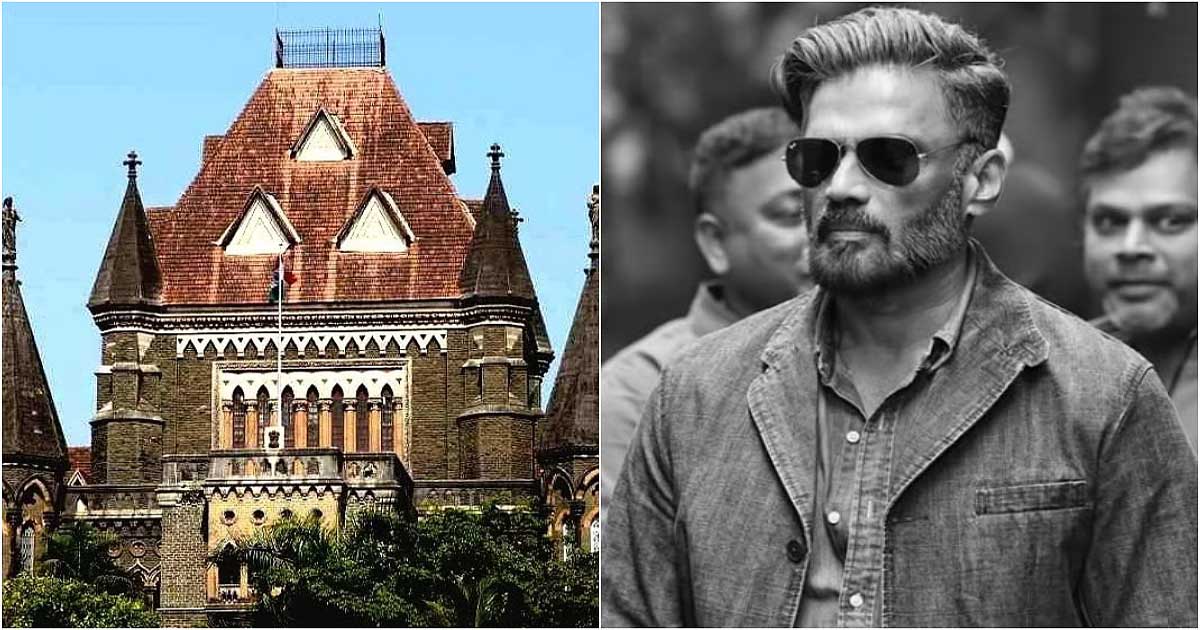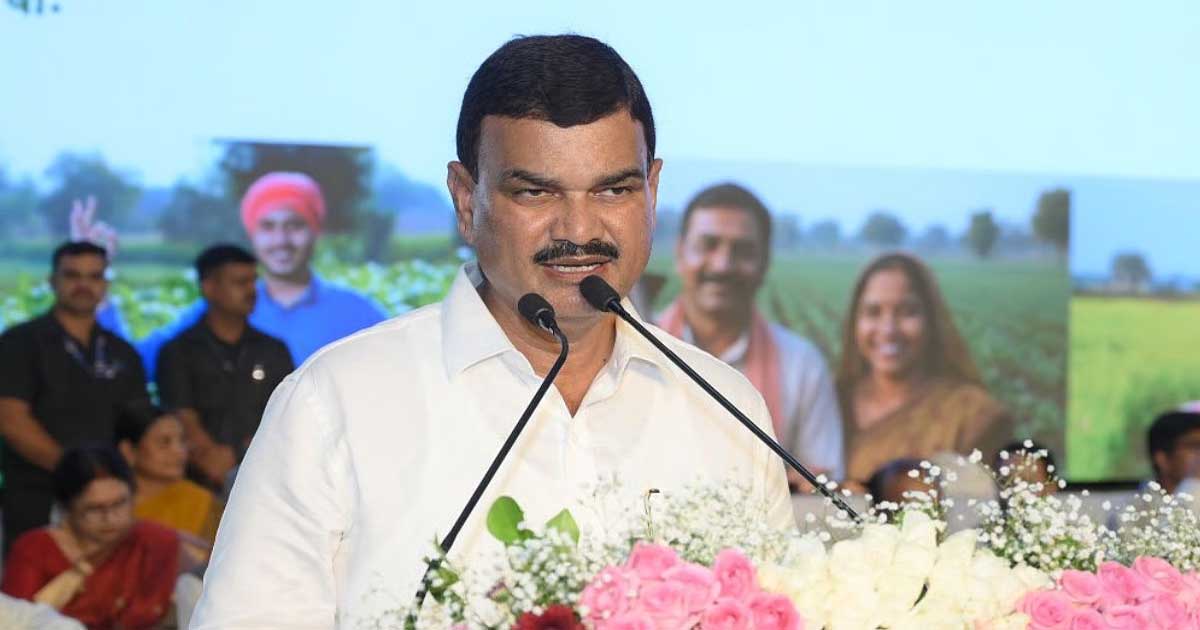National News
SC orders release of death row convict found to be juvenile at the time of crime
The Supreme Court has set side the death sentence of a rape-murder convict, after it was established that he was a juvenile on the date of commission of the offence.
A top court bench of justices B.R. Gavai, Vikram Nath and Sanjay Karol said: “The conviction of the appellant is upheld; however, the sentence is set aside. Further, as the appellant at present would be more than 20 years old, there would be no requirement of sending him to the Juvenile Justice Board (JJB) or any other child care facility or institution. The appellant is in judicial custody. He shall be released forthwith.”
The apex court affirmed the trial court order convicting him for the offence of rape and murder, but set aside the death sentence awarded to the accused, convicted in a December 2017 rape and murder case in Madhya Pradesh.
The bench noted that it is of the view that merits of the conviction could be tested and the conviction which was recorded cannot be held to be vitiated in law merely because the inquiry was not conducted by the JJB.
“It is only the question of sentence for which the provisions of the Juvenile Justice (Care and Protection) Act, 2015, would be attracted and any sentence in excess of what is permissible under the 2015 Act will have to be accordingly amended as per the provisions of the 2015 Act. Otherwise, the accused, who has committed a heinous offence and who did not claim juvenility before the trial court, would be allowed to go scot-free,” added the bench.
The top court judgment came on a man’s plea challenging the Madhya Pradesh High Court’s order dated November 15, 2018. The Indore bench of the high court had upheld the death sentence awarded by the lower court and dismissed the appeal filed by the appellant challenging his conviction and sentence.
The accused, during the pendency of these appeals, moved an application claiming juvenility and consequently the benefits available under the provisions of the 2015 Act.
The bench said the appellant is held to be less than 16 years, and therefore, the maximum punishment that could be awarded is up to three years.
“The appellant has already undergone more than five years. His incarceration beyond three years would be illegal, and therefore, he would be liable to be released forthwith on this count also,” it added.
The bench considered a report from the Court of First Additional Sessions Judge, Manawar, Dhar district, Madhya Pradesh, dated October 27, 2022 along with all the material evidence both documentary and oral adduced before it on the basis of which the report has been submitted.
The top court accepted the trial court report and held that the appellant was aged 15 years, four months and 20 days on the date of the incident.
It added, “It would also be pertinent to notice that the institution is not a private institution, but a government primary school and this court does not find any reason to disbelieve or even doubt the testimony of government servants both working and retired.”
The bench noted, “The intention of the legislature is to give benefit to a person who is declared to be a child on the date of the offence only with respect to its sentence part.”
Bollywood
Bombay HC Reserves Order On Sunil Shetty’s Plea Seeking Protection Of Personality Rights

Mumbai: The Bombay High Court on Friday reserved its order on a plea filed by Bollywood actor Sunil Shetty seeking protection of his personality rights and an injunction against unauthorised use of his name, image, and likeness on social media and various websites.
A single-judge bench of Justice Arif S Doctor briefly heard arguments from senior advocate Birendra Saraf, representing the 64-year-old actor, and remarked that “it is scary what people can do with the unregulated use of AI on social media.” The court is expected to pass an ex parte ad-interim order in due course.
Shetty, who has acted in over 100 films, has filed a commercial intellectual property rights infringement suit against several social media platforms, websites, and unknown persons (John Doe defendants) for what he described as “extensive and ongoing infringement and unauthorised commercial exploitation” of his persona.
The plea highlights that his photographs and deepfake images, including those with his grandchild, were being used for commercial gain by real estate agencies, gambling and astrology websites, and merchandise sellers — all without his consent or authorisation.
Some of these instances involve AI-generated content, including deepfake videos and counterfeit merchandise like T-shirts and posters featuring his image.
Saraf submitted that such unauthorised usage and impersonation dilute the actor’s reputation, goodwill, and contractual commitments with third parties. “The infringement acts are causing irreparable harm to the plaintiff’s immense goodwill built carefully over the years,” the plea stated.
It further argued that the business models of such websites were designed to unlawfully monetise Shetty’s persona and “debase the goodwill and reputation that the plaintiff has cultivated over many years.”
The actor has sought a permanent injunction restraining all defendants from misusing his personality rights — including his name, image, likeness, voice, or any other attributes — in any form, especially through AI-generated or deepfake content.
He has also sought directions to take down infringing content and prohibit the manufacture or sale of counterfeit merchandise using his likeness.
Justice Doctor had earlier, while granting interim relief to singer Asha Bhosle in a similar plea, observed that using AI tools to imitate a celebrity’s voice without consent violates their personal rights.
National News
ACC Locks Asia Cup Trophy With Instructions Of Not Be Handed To Team India Without Mohsin Naqvi’s Presence

Lahore: The Asia Cup trophy, which was not presented to the victorious Indian team after its refusal to accept it from Asian Cricket Council chief Mohsin Naqvi, has been locked away at the ACC’s Dubai headquarters with “instructions that it should not be moved or handed over” without the Chairman’s approval.
The trophy has been at the ACC office after Naqvi walked away with it from the presentation ceremony following the Indian team’s refusal to accept it from him. India beat Pakistan in the Asia Cup final in Dubai on September 28.
Naqvi is also the Pakistan Cricket Board (PCB) Chairman and the Interior Minister of his country and India-Pakistan tensions have hit a peak after the Pahalgam terror attack.
“As of today the trophy is still in ACC offices in Dubai with clear intructions from Naqvi that it should not be moved or handed over to anyone without his approval and in person presence,” a source close to Naqvi told PTI.
“Naqvi has given clear instructions that only he will hand over the trophy in person (whenever that happens) to the Indian team or BCCI,” he added.
The entire Asia Cup was overshadowed by Indo-Pak hostilities. The Indians refused to shake hands with the arch foes throughout the tournament and players from both sides mocked each other with politically charged gestures.
Naqvi too made political statements on his social media pages.
The BCCI took strong exception to his act of walking away with the trophy and vowed to raise the matter in an ICC meeting next month. It is being widely speculated that a strong move to get Naqvi censured and even removed as Director in the ICC could be made.
“It remains to be seen what will be the long term ramifications for the PCB or Naqvi because the BCCI is clear he (Naqvi) didn’t have any right to insist on handing the trophy himself to the Indian team and refusing to send it to the BCCI who were official hosts of the event,” the source said.
National News
Nine Maharashtra Districts Included In PM Dhan Dhanya Krishi Yojana To Boost Farmer Income And Self-Reliance

Mumbai: “The Prime Minister Dhan Dhanya Krishi Yojana marks a decisive step towards increasing farmers’ income and making them self-reliant,” said Maharashtra Agriculture Minister Dattatray Bharane. “After consistent efforts for farmers’ justice, this is a significant achievement. The Central Government has included nine districts from Maharashtra in the scheme, which will be inaugurated tomorrow in Delhi by Prime Minister Narendra Modi. I urge farmers across the state to actively participate in this initiative,” Bharane added.
A state-level event for Maharashtra will be held tomorrow under the chairmanship of Agriculture Minister Dattatray Bharane at the Pune District Central Cooperative Bank Auditorium.
The Prime Minister Dhan Dhanya Krishi Yojana (PMDDKY) has been launched by the Central Government to improve the condition of farmers in regions with low productivity, limited irrigation facilities, and inadequate access to agricultural credit. A total of 100 districts across India have been selected under the scheme, including nine from Maharashtra—Palghar, Raigad, Dhule, Chhatrapati Sambhajinagar, Beed, Nanded, Yavatmal, Chandrapur, and Gadchiroli.
The scheme aims to promote agricultural improvement, crop diversification, productivity enhancement, and sustainable farming. It will be implemented over the next six years, with an annual budgetary provision of ₹24,000 crore. In the selected districts of Maharashtra, the focus will be on grain storage, processing, irrigation improvement, and local employment generation.
Minister Bharane welcomed the decision, saying, “This scheme will directly benefit farmers across the state. It will strengthen sustainable agriculture, water conservation, and the adoption of modern technologies—boosting farmers’ confidence. This initiative truly means ‘strength to farming, relief to farmers’.”
More than 300 progressive and innovative farmers are expected to attend tomorrow’s event. Under this program, 36 different schemes from 11 departments of the Central and State Governments will be implemented in convergence. The activities will be executed at multiple levels—Gram Panchayats, Krishi Vigyan Kendras (KVKs), Agricultural Market Committees, Kisan Samriddhi Kendras, and Cooperative Credit Societies (PACS).
Currently, over 36 central and state agricultural schemes are being converged to boost crop productivity, ensure sustainability, and strengthen post-harvest technology and credit systems. The nationwide launch of the PM Dhan Dhanya Krishi Yojana, Natural Farming, and Pulses Campaign will be conducted through live broadcasts at district headquarters, KVKs, taluka offices, Gram Panchayats, and agricultural institutions.
Representatives from local bodies, agriculture departments, universities, scientists, award-winning farmers, natural farming practitioners, and farmer producer companies will participate in these events.
Minister Bharane also extended his gratitude to Prime Minister Narendra Modi and Union Agriculture Minister Shivraj Singh Chouhan for including nine districts from Maharashtra under this ambitious and farmer-friendly initiative.
-

 Crime3 years ago
Crime3 years agoClass 10 student jumps to death in Jaipur
-

 Maharashtra1 year ago
Maharashtra1 year agoMumbai Local Train Update: Central Railway’s New Timetable Comes Into Effect; Check Full List Of Revised Timings & Stations
-

 Maharashtra12 months ago
Maharashtra12 months agoMumbai To Go Toll-Free Tonight! Maharashtra Govt Announces Complete Toll Waiver For Light Motor Vehicles At All 5 Entry Points Of City
-

 Maharashtra1 year ago
Maharashtra1 year agoFalse photo of Imtiaz Jaleel’s rally, exposing the fooling conspiracy
-

 National News12 months ago
National News12 months agoMinistry of Railways rolls out Special Drive 4.0 with focus on digitisation, cleanliness, inclusiveness and grievance redressal
-

 Maharashtra11 months ago
Maharashtra11 months agoMaharashtra Elections 2024: Mumbai Metro & BEST Services Extended Till Midnight On Voting Day
-

 National News1 year ago
National News1 year agoJ&K: 4 Jawans Killed, 28 Injured After Bus Carrying BSF Personnel For Poll Duty Falls Into Gorge In Budgam; Terrifying Visuals Surface
-

 Crime12 months ago
Crime12 months agoBaba Siddique Murder: Mumbai Police Unable To Get Lawrence Bishnoi Custody Due To Home Ministry Order, Says Report






















